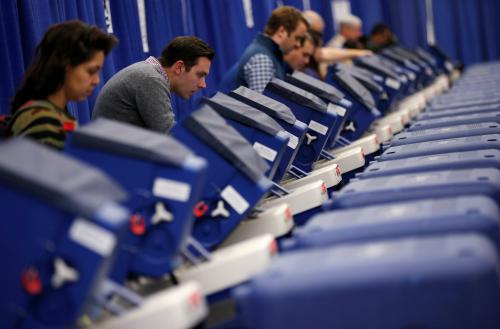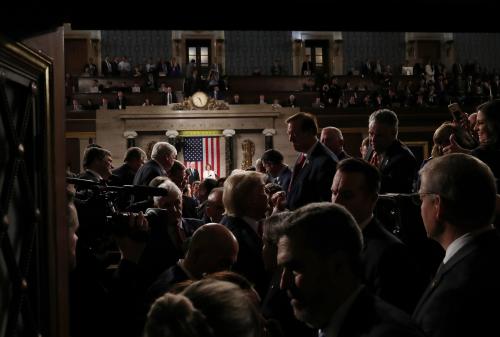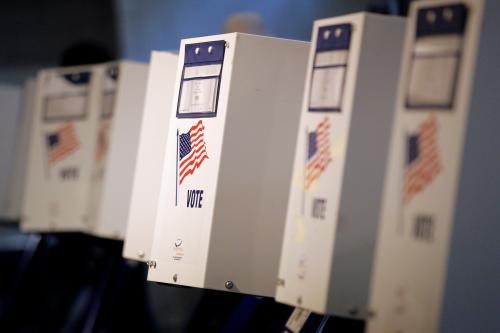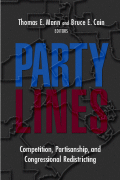A year ago, the group Indivisible didn’t exist. By mid-August of this year, its network of grassroots progressive activists had established more than 6,000 affiliates, an average of about 14 in every congressional district.
A year ago, the group Run for Something likewise didn’t exist. By late October, it had gathered names of more than 11,000 progressive activists who were interested in running for state and local offices. Of those, it had interviewed and screened about 1,500, and more than 300 had filed to run in the 2018 election cycle.
EMILY’s List, a group that supports pro-choice Democratic women in politics, has been recruiting and backing candidates for office since its founding in 1985. In 2017, however, its efforts have expanded to a whole new level. As of November, its “Run to Win” recruitment campaign had elicited almost 20,000 women who were interested in running.
Emerge America, founded in 2002, is likewise no newcomer to candidate recruitment. Its goal is to bring progressive Democratic women into politics by recruiting, training, and supporting them. But by October 2017, it had expanded its operations into 25 states, from 16 at the beginning of the year. It’s aiming for all 50 states.
The list could go on…and on. Shocked by the election of President Trump and dismayed at Democrats’ lockout from the federal government, progressives are rapidly launching and scaling up efforts to recruit and support progressive candidacies. In doing so, they are playing catch-up with conservatives, who have been aggressively recruiting and sustaining insurgent primary bids since the Tea Party caught fire in 2009.
What are the implications of independent groups’ rush to build their own candidate pipelines? In a new Brookings report, Raymond J. La Raja (a political scientist at University of Massachusetts Amherst) and I take an in-depth look at how activists are re-engineering who enters politics.
In the Republican world, insurgent groups have made a specialty of targeting districts where the general election is non-competitive and the primary is the only election that counts. By trying to elect purists and “primarying” incumbents in non-competitive districts, they seek to move Republican congressional and state legislative caucuses sharply to the right—sometimes even in the absence of winning majorities. That is the story of the Tea Party, the Club for Growth, the Senate Conservatives Fund, and more.
But that’s not where the story ends. After an initial few years of stunned paralysis, business groups are building programs to recruit and support counter-insurgent candidacies. Their goal is to win legislative seats, both nationally and at the state level, for politicians who are willing to compromise in office and who adopt what one business group called “a no-crazy-bills approach to legislating.”
We would be surprised if this escalating contest between Republican insurgents and counter-insurgents were to be resolved anytime soon, but perhaps more important is how it won’t be resolved: by the official Republican Party. Increasingly, the party organization struggles to maintain influence in nomination contests. Increasingly, therefore, it is saddled with whichever candidates that activist groups manage to get into the primary race and ultimately onto a general election ballot. In Congress and state legislatures, party leaders must attempt to forge coalitions among colleagues whom they have little power to vet or influence—a recipe for dysfunction. The Freedom Caucus in the U.S. House, spawned by the Tea Party movement, has already shown how a small faction of insurgents can shut down the government and pull the party toward extreme positions. In Alabama, Roy Moore’s primary win in the U.S. Senate race against the party-supported candidate is the latest example of the party’s weakness (Moore is supported staunchly by the Senate Conservatives Fund), with potentially negative consequences for prudential governance.
Democrats, although a few election cycles behind Republicans, are likewise headed toward outsourcing of their candidate pipeline. “They’re going to have to go through the growing pains Republicans went through a few years ago,” a conservative consultant said.
That process is underway. Since the shock of the 2016 election, independent and grassroots groups have sprung up in large numbers and with dizzying speed. An only partial list includes All of Us, Brand New Congress, the Collective PAC, Emerge America, Flippable, Forward Majority, Indivisible, Justice Democrats, Our Revolution, Run for Something, Sister District, Swing Left, and We Will Replace You. “Progressive Democrats energized by Trump’s win are recruiting, training, and organizing like I’ve never seen before,” one consultant said. Sorting through the activity, we notice three patterns.
First, the groups are wary of the formal Democratic Party organization and prize their independence from it. Many believe that the party failed them and the country, and they are reluctant to give it the benefit of the doubt. Second, the groups are tugging the party to the left. We interviewed no Democratic-leaning group that wanted to make the party less pure or less liberal, and many expressed reluctance to compromise ideologically, even if purism costs Democrats some winnable races.
Third, possibly most significant: the groups are magnets for amateur candidates who are seen as untainted by prior careers in politics and by the compromises of elective office. As a spokesperson for Justice Democrats told us, “We don’t want career politicians, period.”
Though no single group is representative of all—in fact, diversity is the only rule—the mindset of Justice Democrats is consistent with much of what we heard. Founded by Bernie Sanders supporters after the 2016 election, the group seeks to develop a nationwide, 100-person ticket of progressive congressional candidates running on a common reform platform. Of the eleven candidacies the group had launched as of late August, according to spokesperson Alexandra Rojas, six were challenging Democratic incumbents. “We are running on trying to transform the Democratic Party because it hasn’t been doing the job for the people,” she said.
Progressives seek not just to move policy to the left and to recruit new faces but also to change what it means to be a viable candidate. Assessing the surge of activism on the left, a Republican consultant we spoke with observed, “It [the left] has always been centered around issues, and now it’s centered on the type of person running.” To the extent they succeed in creating political pathways for unconventional candidates, the outside groups may provide useful ventilation for the political system. But to the extent the groups open pathways for untested and extreme candidates, the result could be more volatility and chaos in government.










Commentary
Activist groups are ‘amateurizing’ our political candidates
December 12, 2017